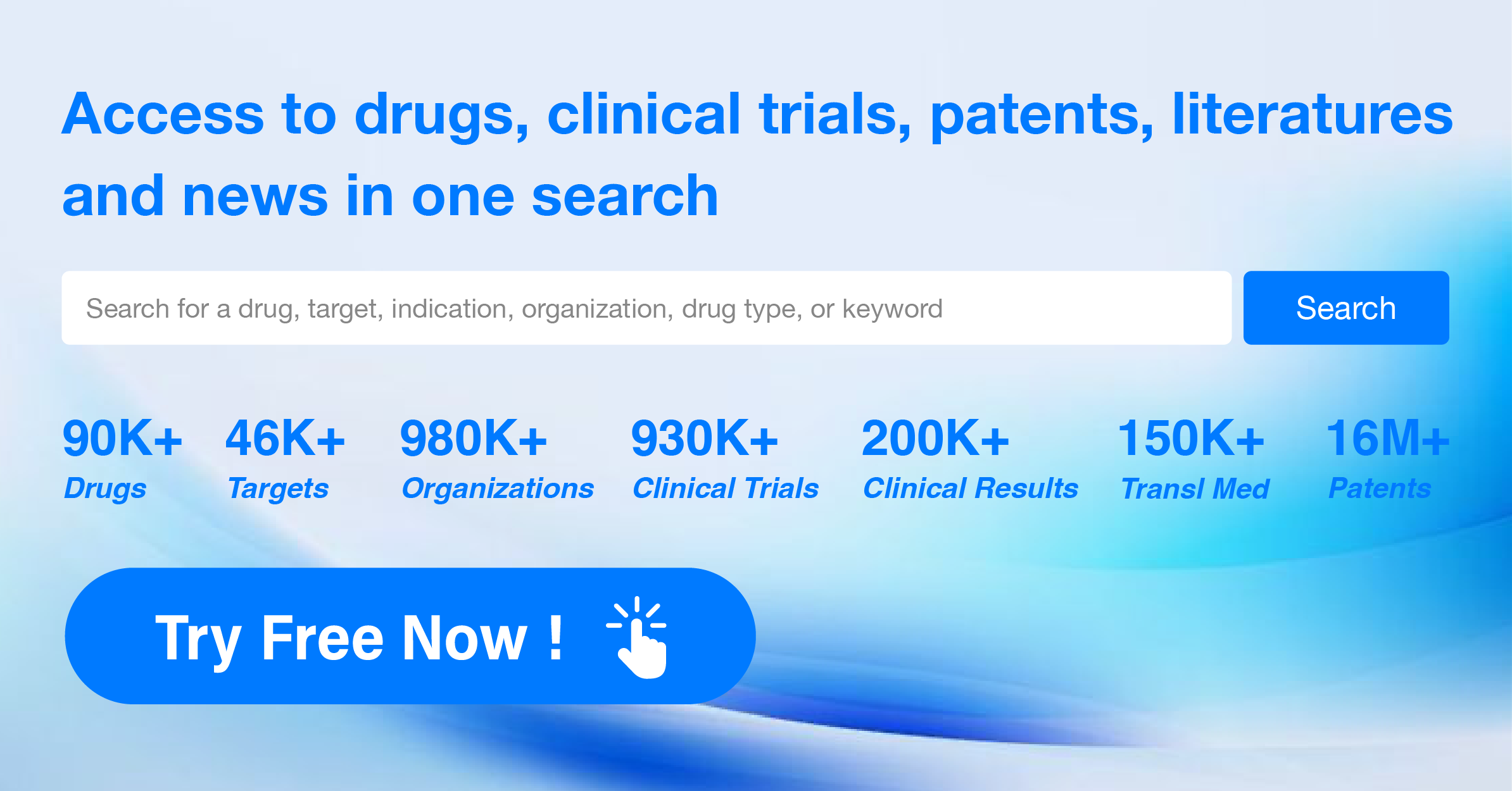Pharma Frontiers: Daily Digest of Global Pharmaceutical News – Jul 10
1.IDEAYA Biosciences Announces Positive Phase II Clinical Trial Results for Investigational Therapy IDE397
On July 9th, IDEAYA Biosciences announced positive clinical data from a Phase II clinical trial of its investigational therapy, IDE397, in patients with urothelial carcinoma and non-small cell lung cancer (NSCLC) lacking methionine adenosyltransferase 2A (MTAP). The trial achieved an overall response rate (ORR) of approximately 39% and a disease control rate (DCR) of 94% in the 18 evaluable patients, with tumor reduction observed in approximately 78% of the patients. IDE397 is a potential first-in-class inhibitor of methionine adenosyltransferase 2A (MAT2A). Currently, there are no FDA-approved treatments specifically for MTAP-deficient solid tumors, highlighting an unmet medical need. The primary tumor types in the Phase II trial were urothelial carcinoma and NSCLC. MTAP deletion occurs in more than 15% of NSCLC cases and over 25% in urothelial carcinoma. The patients enrolled in this trial had received a median of two prior lines of therapy. Evaluable patients included 7 with urothielial carcinoma, 4 with NSCLC adenocarcinoma, and 7 with squamous NSCLC. The administered dose of IDE397 was 30 mg daily. Trial results, assessed according to RECIST 1.1 criteria, revealed that one patient achieved complete remission, six patients achieved partial remission, yielding an ORR of approximately 39%. The DCR was 94%, with disease stabilization in 10 additional patients. A reduction in tumor size was observed in 14 out of the 18 patients (78%). IDE397 is a small molecule inhibitor of MAT2A developed by IDEAYA. Tumors deficient in MTAP are particularly sensitive due to alterations in tumor metabolic pathways. The MTAP-deficient patient cohort is estimated to represent 15% of all solid tumors, including approximately 15% of non-small cell lung cancers, 28% of esophageal cancers, 26% of bladder cancers, and 10% of stomach cancers.
2.Sirnaomics Announces Positive Early Clinical Results for Anticoagulant RNAi Therapy
On July 9th, Sirnaomics announced that the second patient cohort of the Phase 1 clinical trial for its investigational RNAi therapy, STP122G, targeted for anticoagulation therapy, was successfully completed, revealing promising interim data. STP122G is a novel anticoagulant therapy targeting coagulation factor XI. The second patient cohort consisted of 8 healthy volunteers who received a 50 mg dose via subcutaneous injection and were followed up for 140 days. Safety data indicated no dose-limiting toxicity or serious adverse events were observed, while dose-related target silencing activity was noted. Consequently, the clinical study will proceed to the next cohort dosage group. Sirnaomics plans to recruit up to five dose-escalation cohorts for this clinical trial. This Phase 1, multicenter, randomized, double-blind, cohort-design study aims to evaluate the safety, tolerability, and pharmacokinetics of single ascending doses of STP122G administered subcutaneously to healthy volunteers. The trial will compare the safety and tolerability of five different doses of STP122G (25 mg, 50 mg, 100 mg, 200 mg, 400 mg) to select the optimal dose for future studies. Additionally, target silencing activity and therapeutic efficacy will be measured and compared to assess dose-dependency. The clinical study plans to enroll 40 participants. STP122G, a third-generation anticoagulant targeting coagulation factor XI, is intended for patients with coagulation disorders where previous treatments could not completely prevent bleeding events. Factor XI, an enzyme primarily produced by hepatocytes in the liver, plays a crucial role in the human coagulation cascade. As a candidate RNAi therapy based on Sirnaomics' GalAhead mxRNA delivery platform, STP122G targets hepatocytes, inhibiting the production of factor XI, offering prolonged therapeutic effects and a reduced risk of bleeding.
3.Novo Nordisk has announced the latest results for their next-generation weight reduction therapy, amycretin, showing more than 13% weight reduction in 12 weeks!
On July 9th, Novo Nordisk announced that it will reveal detailed trial results of amycretin, an oral long-acting co-agonist of GLP-1 and insulin, in the upcoming abstracts of the 2024 European Association for the Study of Diabetes (EASD) annual meeting. Analysis indicates that at 12 weeks, participants receiving the highest dose of amycretin experienced an average weight reduction of 13.1%, and their weight loss had not yet plateaued. Based on these positive results, Novo Nordisk will further develop amycretin. The phase 1 trial disclosed was a "first-in-human," single-center, placebo-controlled, double-blind study. Participants, none of whom had diabetes, with body mass index (BMI) ranging from 25.0 to 39.9 kg/m^2, were randomized to receive daily oral amycretin (n=95) or placebo (n=29). The study consisted of three parts: single ascending doses (Part A, 1-25 mg), 10-day multiple ascending doses (Part B, 3-12 mg), and 12-week multiple ascending doses (Part C, 3-2×50 mg). The primary endpoint was the number of adverse events (AEs) during treatment, secondary endpoints included the area under the curve (AUC) and mean maximum concentration (Cmax) of plasma amycretin levels. Changes in baseline weight were assessed as key exploratory endpoints. Analysis showed that at week 12, the average weight change in the amycretin group (50 mg, -10.4% [SD=4.6]; 2×50 mg, -13.1% [SD=4.8]) was significantly greater than that in the placebo group (-1.1% [SD=2.6]; both doses p<0.0001). Notably, there was no observed plateau in weight loss among participants, suggesting that further weight reduction could be achieved with prolonged treatment.
4.Abbott's Calcium Channel Blocker Pinaverium Bromide Tablets Nominated for Priority Review Pathway
On July 8th, according to the official website of the Center for Drug Evaluation (CDE), Abbott has proposed that its Pinaverium Bromide Tablets be included in the priority review pathway. The indications are: symptomatic treatment of pain, irregular bowel movements, and gastrointestinal discomfort associated with intestinal functional disorders; symptomatic treatment of pain associated with biliary dysfunction; and preparation for barium enema procedures. The public notice did not disclose the acceptance number. Pinaverium Bromide Tablets are a medication used to treat functional gastrointestinal diseases. As a calcium channel blocker, it helps restore the normal contraction process of the intestines. Public records show that Pinaverium Bromide was first registered by Solvay Pharmaceuticals (now under Abbott) in 1975. In China, Abbott's Pinaverium Bromide Tablets (brand name: Destrukt) were first approved for market in 2015, with numerous subsequent registration records. Meanwhile, since 2013, several generic versions of Pinaverium Bromide Tablets have been approved for market in China.
5.Huahai Pharmaceutical's bispecific antibody new drug approved for clinical trials to treat advanced solid tumors
On July 9, Huahai Pharmaceutical announced that its subsidiary, Huaaotai Biopharmaceutical, in collaboration with Huabo Biopharm, has received clinical approval in China for the investigational drug HB0046, a bispecific antibody targeting CD39 and CD73, aimed at treating advanced solid tumors. Publicly available information indicates that the ATP (adenosine triphosphate)-adenosine pathway is one of the key immunoregulatory mechanisms in the tumor microenvironment, with CD39 and CD73 enzymes being crucial to this pathway. CD39 acts as an ecto-nucleoside triphosphate diphosphohydrolase-1 with two transmembrane domains and an extracellular domain, where its active site is located. The interaction between the two transmembrane domains could also influence its enzymatic activity. CD73 functions as an ecto-5'-nucleotidase and exists as a homodimer on the cell surface or in a soluble form extracellularly. CD39 converts ATP into AMP (adenosine monophosphate), and CD73 catalyzes the conversion of AMP to adenosine, which in turn can inhibit the function of immune cells by binding to receptors on the surface of tumor cells. Research shows that simultaneous blocking of CD39 and CD73 enhances antitumor effects synergistically. According to Huahai Pharmaceutical, HB0046 is a bispecific antibody independently developed by Huaaotai, consisting of an anti-CD39 VHH (variable heavy chain) fragment linked to an anti-CD73 monoclonal antibody. This bispecific antibody exhibits high affinity for CD39 and CD73 and effectively inhibits the enzymatic activity of both membrane-bound and soluble forms of CD39 and CD73, displaying significant synergistic effects in inhibiting ATP-mediated proliferation of T cells.
6.Eli Lilly and Company will acquire Morphic with a total payment of approximately $3.2 billion
On July 9th, Eli Lilly and Company along with Morphic Holding announced that Eli Lilly will acquire Morphic for an amount totaling approximately $3.2 billion. Through this acquisition, Eli Lilly will gain access to Morphic’s leading project, the oral integrin therapy MORF-057, intended for the treatment of inflammatory bowel disease (IBD). This acquisition will expand Eli Lilly's immunology pipeline and marks the company’s first biotechnology firm acquisition disclosed this year.
Morphic's principal project involves the development of the selective oral small molecule α4β7 integrin inhibitor MORF-057, aimed to treat IBD. The therapy has potential to improve patient outcomes and expand treatment options. MORF-057 works by preventing the interaction between the α4β7 integrin on the surface of lymphocytes and the mucosal endothelial cell ligand MAdCAM-1. This significantly reduces the migration of lymphocytes from the bloodstream into intestinal mucosal tissue and avoids the inflammation associated with IBD.
In April of the previous year, Morphic released positive top-line data from the primary cohort of its EMERALD-1 Phase 2a clinical trial of MORF-057. MORF-057 met its primary endpoint: a significant reduction of 6.4 points in the Robarts Histopathology Index (RHI) from baseline to week 12 (p=0.002). Regarding a secondary endpoint, the modified Mayo Endoscopic Score (mMCS) showed a reduction of 2.3 points from baseline.
Additionally, Morphic has other preclinical developmental pipelines aimed at treating a range of severe chronic conditions including autoimmune diseases, pulmonary arterial hypertension, fibrotic diseases, and cancer. Furthermore, the company cooperates with Schrödinger to leverage its proprietary MInT technology platform to advance its pipeline and discovery activities.
7.Keymed Biomedical has authorized two of its autoimmune bispecific antibodies for overseas markets, for a total of $185 million plus equity!
On July 9th, Keymed Biomedical announced the licensing of two bispecific auto-immune antibodies, CM512 and CM536, to Belenos Biosciences, concerning global rights outside Greater China. According to the terms of the agreement, Keymed grants Belenos exclusive rights to develop, manufacture, and commercialize the preclinical-stage drugs CM512 and CM536 globally, excluding Greater China. In return, Keymed will receive an upfront and near-term payment of $15 million, while its wholly-owned subsidiary, IBRIDGE HK HOLDINGS LIMITED, will acquire approximately 30.01% equity in Belenos. Moreover, based on the achievement of certain developmental, regulatory, and commercial milestones, Keymed is also entitled to up to an additional $170 million in payments. As part of the licensing agreement, Belenos and Keymed will enter into a supply agreement, under which Belenos will be entitled to purchase the required quantities of CM512 and CM536 from Keymed or its contract manufacturers for conducting clinical trials. It is known that both CM512 and CM536 are independently developed bispecific antibodies by Keymed. CM512 was filed for clinical trials in China on May 12, 2024 (CXSL2400309), and CM536 is in preclinical stages. Keymed has not disclosed more public information about these two bispecific antibodies. Belenos, a newly registered company in Delaware, USA, focuses on drug development and commercialization, including the development and commercialization of CM512 and CM536 in the licensed regions. Following the delivery of the licensing agreement, Belenos will be owned 30.01% by IBRIDGE HK HOLDINGS LIMITED and 50.26% by a fund affiliated with OrbiMed.
How to obtain the latest research advancements in the field of biopharmaceuticals?
In the Synapse database, you can keep abreast of the latest research and development advances in drugs, targets, indications, organizations, etc., anywhere and anytime, on a daily or weekly basis. Click on the image below to embark on a brand new journey of drug discovery!




